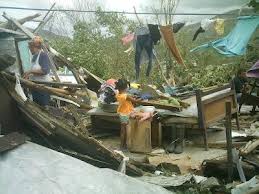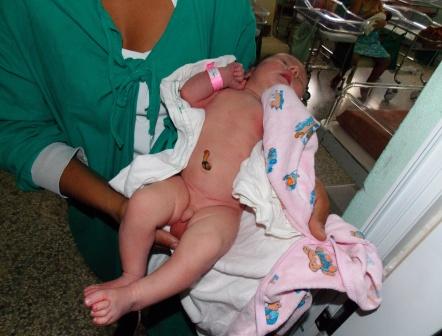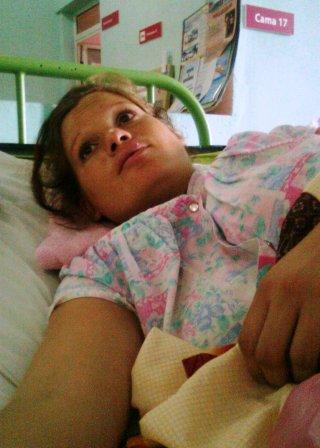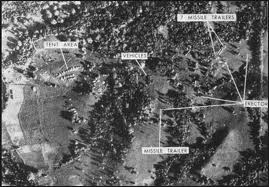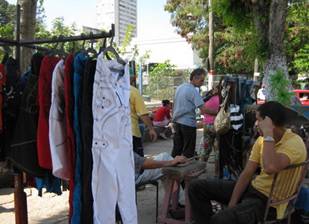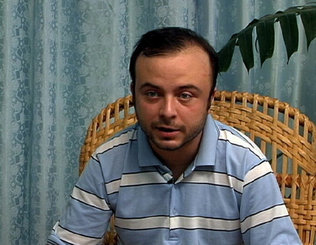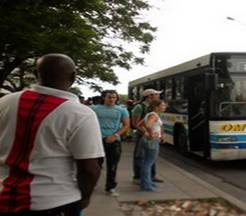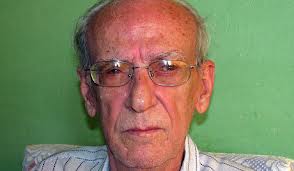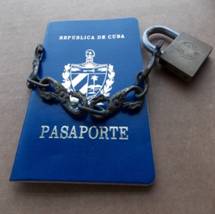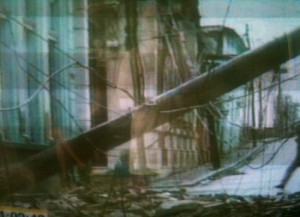
How You Can Help
Hurricane Sandy has devastated the city of Santiago de Cuba and caused severe damage in several towns in the east of the country. The images of destruction speak for themselves, but the cameras barely manage to capture a share of the drams. The great tragedy runs on a plane difficult to photograph, or to describe with words. It’s impossible to narrate the worst of it. It is a mixture of feelings that shift from sadness to impotence, pain to desperation, dismay to fear. Thousands of people who have seen the wind take a good part of their lives, who woke up one morning in destroyed towns of collapsed streets and missing roofs, and who know that recovering from something like that could take the rest of their existence.
Sandy took five hours to cross eastern Cuba , but destroyed homes, infrastructure and objects that will take decades to reestablish. The loss of human lives has been the most tragic outcome, but nature has also suffered a lot. The intense gusts of wind hit housing stock with decades of accumulated deterioration, the force of the hurricane fell on a population without food reserves to face the days of collapse that have followed. As if the havoc had been small, the floods caused in the center of the country have intensified the agricultural disaster, worsening the nation’s ability to recover. Cuba today is in a calamitous situation, although the triumphalism of media officials wants to substitute slogans for laments, and illusions for objective evaluation.
If we recognize the seriousness of the situation, we can find real solutions. The government has the ultimate responsibility to manage this emergency situation with transparency and humility. This is a time to put pride aside and to ask for help from international agencies trained in these types of tragedies. We Cubans hope that our authorities will facilitate the entry of the international Red Cross and other humanitarian organizations to evaluate the infected zones and contribute resources and solidarity to those who lost almost everything. The threats of an outbreak of cholera and of the possible propagation of dengue fever are elements that contribute to the urgency of these decisions. It can wait any longer.
Nor is it advisable to continue with the centralized and political structures for the distribution of aid. The examples above show that when the state wants to take care of everything, including distribution of nails or the delivery of a little sugar, these mechanisms are quickly permeated by the lack of control, corruption, and the diversion of resources that affect every sphere in the country. There is already evidence that the government is blocking activists and independent journalist from going to the affected zones, because the government does not want reports with all the details about the seriousness of what happened, nor do they want parallel paths established for the flow of aid. We must remind them that no party can have a monopoly on solidarity and that the misery of so many is not a time for politics or proselytizing.
In recent days various initiatives have arisen from the citizenry, the exile, the church, other civil society groups, to help alleviate the tragedy caused by Hurricane Sandy in the east of the country. Steeped in solidarity, several citizens have established collection points for basic supplies in the capital and other regions of the country. None of these places is under the auspices of a political party or a specific group, but are based on a humanistic sense and the horizontality of aid. At the end of this week the resources collected will be transported to Santiago de Cuba and distributed through Father Jose Conrado — priest of Santa Teresita Church in Santiago de Cuba — and civil society activists. Priority will be given to the most affected and to the areas most devastated. Below are contact details for those living within or outside the country.
Goods that are being collected:
- Canned foods, dried foods and powdered milk.
- Personal hygiene items (soap, detergent, deodorant).
- Candles and batteries. Bed linen, towels, personal clothing.
- Medications (analgesics, cold medicine, rehydration salts, vitamins, anti-diarrhea pills, muscle pain creams, etc.).
- Pills or drops to chlorinate the water.
- Disposable diapers and sanitary pads.
The addresses where they can be taken:
- Municipio Habana del Este: Barriada de Alamar: Edificio B-17 apto. 21 Zona 5. Alina Guzmán or Nilo Julián, tel: +5353862111
- Municipio Plaza: Factor no. 821, apto 14B entre Conill y Santa Ana. Yoani Sánchez and Reinaldo Escobar Tel: +5352708611 y +5352896812
- Municipio La Víbora: Saco no. 457 apto 6 entre Carmen y Patrocinio. Esperanza Rodríguez and Wilfredo Vallín, tel: +5353149664
- Centro Habana: Headquarters of the Ladies in White, Calle Neptuno no. 963 entre Aramburu y Soledad. Berta Soler Tel: +5352906820
- Municipio Playa: Avenida 1ra no. 4606 entre 46 y 60, Miramar. Ailer González +5353233726
For those who do not reside in the country and want to get help, we suggest buying food online at the following websites:
http://envioalimentosacuba.com
We recommend buying foods that do not require refrigeration and that can be eaten without cooking. Shipping may be to any of the people listed above at the addresses listed, or to any friend or acquaintance you might have on the island. Many thanks in advance!
30 October 2012

